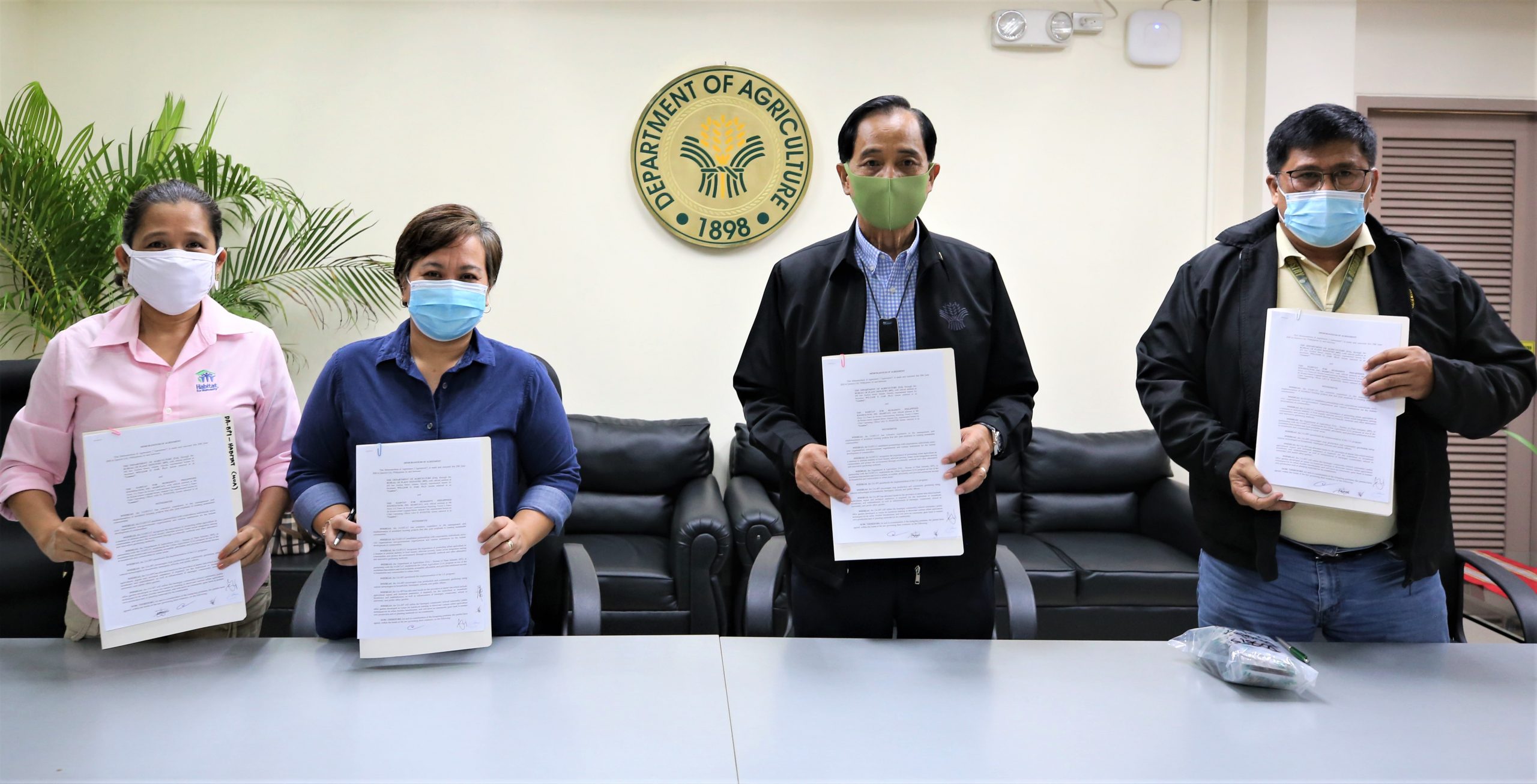
Settlement areas under Habitat for Humanity will soon have access to sustainable food supply following the forging of a partnership between the foundation and the Department of Agriculture (DA) through the Bureau of Plant Industry (BPI).
Agriculture Secretary William Dar and Habitat for Humanity Philippines Foundation, Inc. Chief Operating Officer Lili Fuentes inked a Memorandum of Agreement (MOA) together with BPI Director George Culaste and Habitat Strategic Support Manager Ariane Aliggayu on July 13, 2020 for the implementation of the Urban Agriculture Project (UAP).
Secretary Dar said that through the UAP, communities would have a sustainable source of fresh, safe, and nutritious food, as it will not be affected by restrictions on the movement of food supply, which has been a major concern during the community quarantine.
Even before the pandemic started, Director Culaste said that the bureau already prepared for the UAP implementation in response to Secretary Dar’s directives during the BPI anniversary in January 2020, anticipating potential food security concerns.
As part of the MOA, the DA-BPI shall provide initial agricultural inputs such as seeds, plastic sheets, nets for greenhouse, knapsack sprayer, urban garden modules, and technical assistance. The team also conducted initial visit and soil tests at the potential project sites in Caloocan, Taguig, Pasig, and Calauan as identified by Habitat.
“We are really looking forward to this partnership and this is very timely with (the problem on) the Covid-19 pandemic,” Fuentes said.
She added that the project would help Habitat support their partner families during the pandemic.
About a thousand families will benefit from the project for the initial sites in Caloocan City and Calauan, Laguna. For communities with limited space for gardening, Habitat will assist in the coordination with concerned local government units (LGUs) for the establishment of a community garden.
As of July 9, the urban agriculture for crops and livestock already served 805,294 individuals/households, 13 provincial LGUs, 409 municipal/city LGUs, and 23 communities/barangays/schools for the distribution of seeds and planting materials. ### (Gumamela Celes Bejarin, DA-AFID)













